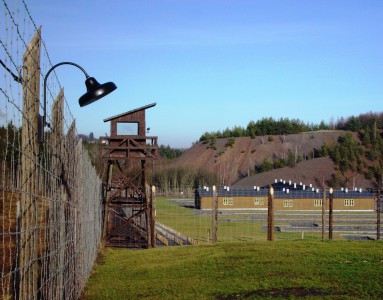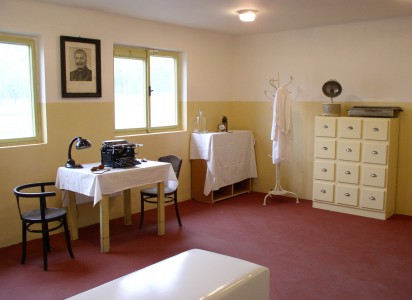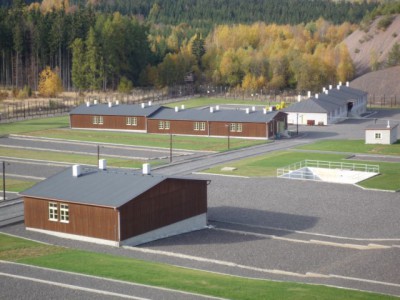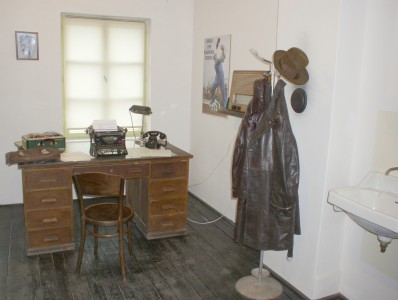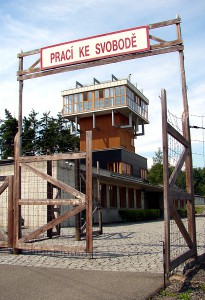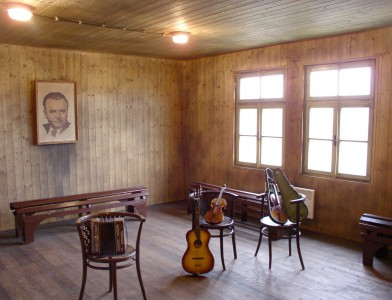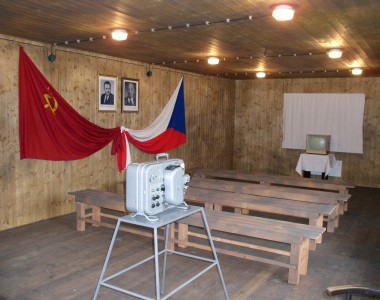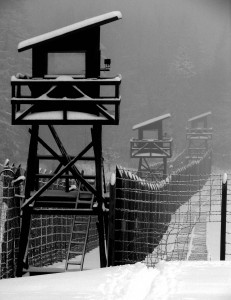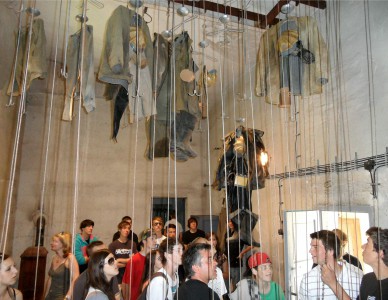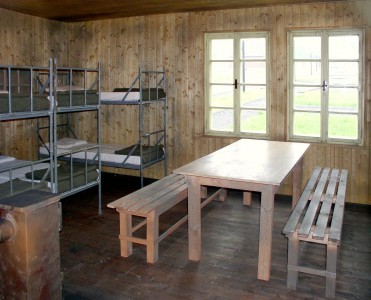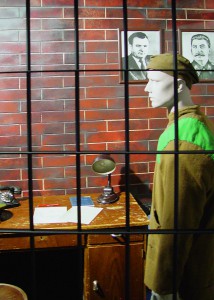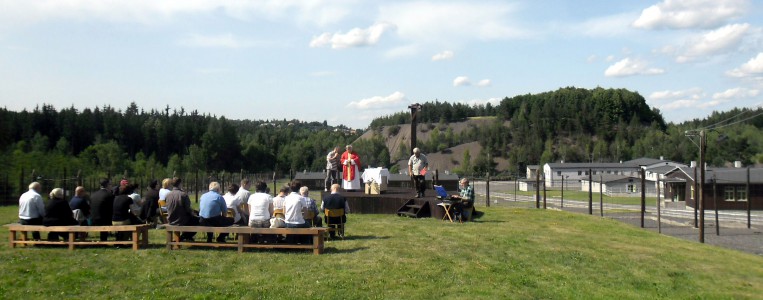The memorial Vojna is not entirely unknown to local filmmakers. This authentically preserved prison complex, one of a kind in Central Europe, has hosted a number of productions. Several episodes of the TV series Zdivočelá země (Land Gone Wild) and the film Bumerang with Jiří Schmitzer were shot there. Jiří Stránský, who was imprisoned in this camp in the 1950s, wrote both projects.

Entrance gate to the memorial Vojna in Lešetice. Photo by: Příbram Mining Museum.
In 2014, the German film Nackt unter Wölfen (Naked among wolves) was lensed at “Vojna”. The production used the memorial to stand in for the concentration camp Buchenwald at the end of March 1945, when prisoners were preparing an uprising against SS units. Notably, German film and television experts awarded that film as the Best German Television Film of 2015, honoring it with the prestigious German Film Prize.
The memorial “Vojna” is located near Příbram in Central Bohemia at the boundary of the municipalities Lazsko, Lešetice and Zavržice, and is administered by the Příbram Mining Museum. It is also known as the memorial “Vojna Lešetice” and labor camp “Vojna”. The camp was established on the site of iron, silver and uranium ore deposits and was named after the nearby hill “Vojna”.
German prisoners of war built it in 1947-1949. After their expulsion in 1949, the largest uranium mining labor camp in Czechoslovakia was built there. In 1951, the camp was transformed into a prison facility named the “Corrective Labor Camp Vojna”. After the amnesty of 1960, the camp was used by the military. In 1999, Czech government turned it into a memorial commemorating the suffering of citizens during the Communist regime, as it was the last location with authentic buildings from that era. In January 2001, the area was declared a cultural monument, and in 2005, after an extensive reconstruction, opened to the public.
Out of the 16 historically important buildings that have been preserved, a number are open to the public. That includes the headquarters building, the bunker, the accommodation facility G, and the correction facility (a cold, bare, concrete room with no heating, where problematic prisoners stayed for days). Other preserved structures consist of a cultural center, a prison infirmary, and other buildings situated between the former uranium shafts Vojna 1 and 2. Despite being reconstructed, Vojna memorial has a very authentic feel, in part due to skillfully designed interiors. There is also a museum exhibition dedicated to the victims of communism.
Contact us for more information about this and other locations.
